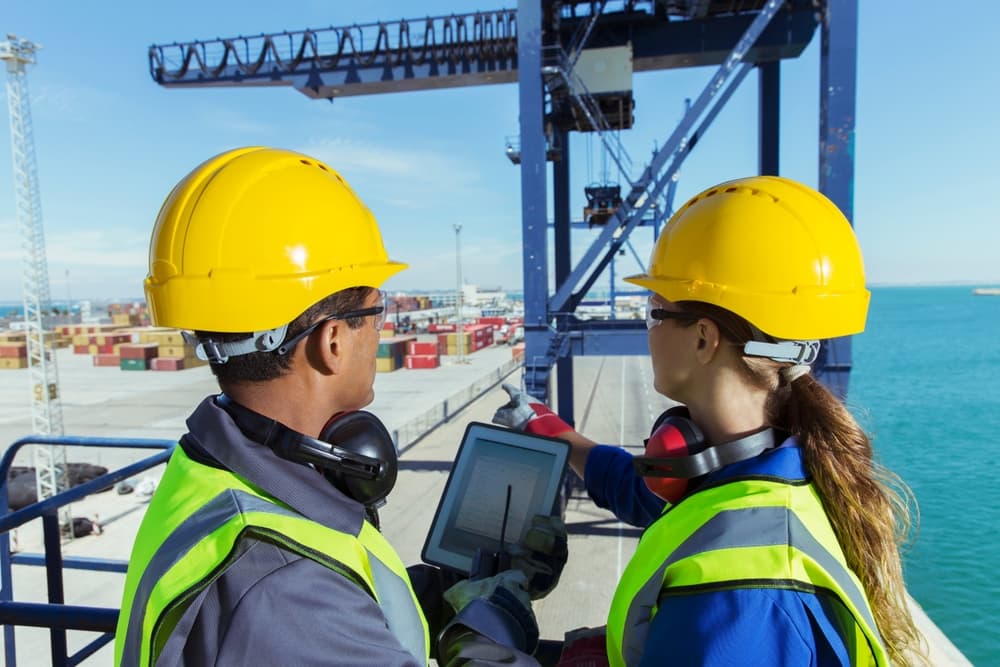The idea of a longshoreman may conjure many different images, as this job title is a bit misleading at first glance. So, what is a longshoreman? Essentially, a longshoreman is an individual who works at a dock or a port, loading and unloading cargo. Sometimes called a dock laborer or harbor worker, the job involved strenuous manual labor and the operation of heavy machinery. Due to the nature of this work, longshoremen have a very high rate of injury.
If you or a loved one was involved in an occupational accident while working as a longshoreman, compensation might be available. Injury, or even death, is an all-too-common incident for longshoremen, and accountability is critically important for the industry as a whole. At Wright & Gray, our maritime accident lawyers have years of experience advocating for longshoremen and other maritime professionals. You do not need to deal with the aftermath of an accident alone. Call us at 888-912-4944 to discuss your options today.
What Is a Longshoreman and What Are Their Responsibilities?

The longshoreman profession involves several responsibilities and is vitally important to port infrastructure and efficiency. A longshoreman often works with dockyard teams to load and unload cargo. Often, they are responsible for inspecting cargo and ensuring the quality of its contents. For this job, a wide knowledge of different cargo types is key. The job is fast-paced and requires swift, efficient, and careful action.
Some additional responsibilities involved in working as a longshoreman can include:
- Maintaining awareness of the port surroundings and safety protocols
- Preparing cargo for lifting
- Operating machinery like chainsaws to move cargo
- Ensuring that safety policies and procedures are upheld
- Interacting with hazardous materials
Due to both the dangerous nature of their work and the long-term wear and tear that can happen due to repetitive movements, longshoremen are prone to accidents and injury. Historically, longshoremen have had the highest injury-frequency rate recorded out of all industries.
What Are the Most Common Longshoreman Accidents?
While dock managers, ship owners, and other port laborers try to work together efficiently and safely, accidents happen regardless. As such, longshoremen can be injured or even killed on the job. Some of the most common longshoreman accidents include:
- Falling from a high distance
- Injuries from heavy lifting
- Drowning
- Burns
- Injuries due to crane mishaps
- Chemical exposure
- Equipment failure or malfunction
- Being hit by a forklift or other vehicle
These accidents can result in serious injuries and illnesses. Some of these injuries can even lead to long-term disability. Some injuries and illnesses are more common than others for longshoremen.
The Four Most Common Longshoreman Injuries and Illnesses
Every day, longshoremen perform tiresome physical labor, handle hazardous materials, and operate potentially dangerous machinery. The four most common illnesses and injuries that longshoremen experience include:
- Traumatic brain injuries from being struck in the head by a force. According to the Mayo Clinic, traumatic brain injuries can range from mild to severe, and can even lead to an impairment in physical or mental functioning
- Repetitive strain injuries are not directly caused by accidents on the job, but result from years of repetitive movements like pulling cables, working on assembly lines, or loading and unloading cargo
- Back injuries from lifting heavy weight. If severe, back injuries can be debilitating and cause long-term health consequences
- Occupational illnesses through long-term exposure to hazardous materials. This can manifest as serious conditions like brain, kidney, or lung cancers as well as Leukemia or Non-Hodgkin’s Lymphoma
This list is not exhaustive, however, and there is a myriad of injuries and accidents that can afflict a longshoreman. The medical expenses and distress associated with such injuries and illnesses can be burdensome. Seeking compensation for these expenses is possible, however, and can reduce this burden.
What Is the Longshore and Harbor Workers’ Compensation Act?
What is a longshoreman entitled to when they experience an injury on the job? Due to the dangerous nature of the job and the sheer number of accidents that occur per year, the United States government enacted the Longshore and Harbor Workers’ Compensation Act (LHWCA) to compensate workers who work on or adjacent to United States waters. The LHWCA is a federal law that provides medical care and vocational rehabilitation services provided to employees who experienced injuries due to maritime employment.
Under the LWHCA § 906, the rates of compensation vary depending on the severity of the injury, equating the compensation to a percentage of the worker’s weekly wage. The law generally works like typical workers’ compensation but provides for the special circumstances and needs associated with a high-risk profession like longshore work.
It should be noted that the LWHCA applies to workers who generally would not benefit from state workers’ benefits. Moreover, it does not provide compensation to workers who qualify for compensation under the Jones Act or Merchant Maritime Act, such as sailors.
The LWHCA sets forth a specific procedure for filing a claim. Any longshoreman who wishes to file a claim under the LWHCA must follow the guidelines set forth in § 919 of the LWHCA, which include:
- File the claim within the time parameters. The LWCHA specifies that a claim must be filed within 30 days of missing work due to the injury or knowing that the injury will cause you to miss work. The exception to this is in the case of illness resulting from hazardous material exposure. In these cases, the worker has a year to file a claim.
- Submit a notice of injury or death to the Office of Workers’ Compensation Programs
- Wait and receive compensation. If the Office of Workers’ Compensation denies the claim, a longshoreman can file a “Longshoreman Claim” instead.
- Wait for the claim’s examiner’s recommendation regarding how to proceed.
In some cases, LWHCA compensation is not enough, or the injury was a direct result of another person’s negligence. Here, filing a personal or premises injury lawsuit can help ensure that you understand all of your legal rights and receive the full damages from the accident available to you under the law.
When To Contact a Personal Injury Attorney

While understanding what a longshoreman is is quite straightforward, maritime laws are complex and can be highly confusing. For this reason, seeking legal assistance from an experienced personal injury attorney can potentially make a substantial difference in the compensation that an injured maritime worker receives. If you are a longshoreman who was injured on the job or experienced an accident due to the recklessness of another person, filing a personal injury lawsuit may be in your interest.
Wright & Gray is a leading personal injury law firm with extensive experience in maritime law and longshoreman injury cases. For years, we have helped our clients receive full compensation for their injuries. For more information about how we can help you, consider contacting us at 888-912-4944 today.
